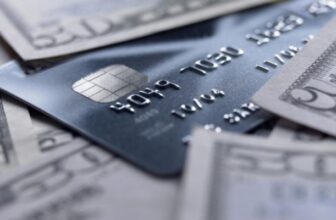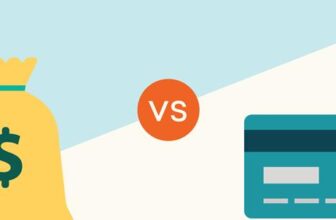
Debt can be a significant burden on our financial well-being, causing stress and limiting our ability to achieve our goals. However, with the right knowledge and strategies, it is possible to regain control over our finances and work towards a debt-free future. In this article, we will explore the top 5 finance tips to control debt. From creating a budget to prioritizing payments, we will provide you with actionable advice and expert insights to help you manage your debt effectively.
1. Understanding Your Debt
To effectively control your debt, it is crucial to have a clear understanding of your financial obligations. Take the following steps to gain a comprehensive overview of your debt situation:
- List all your debts: Compile a list of all the debts you owe, including credit cards, loans, and outstanding bills.
- Calculate the total debt amount: Add up the balances of all your debts to determine the total amount you owe.
- Identify interest rates and terms: Note down the interest rates and terms of each debt to prioritize repayment.
Understanding the full scope of your debt will empower you to make informed decisions and take the necessary steps to regain control.
2. Creating a Realistic Budget
A well-planned budget is an essential tool for managing your finances and controlling debt. Follow these steps to create a realistic budget:
- Track your income and expenses: Record all sources of income and track your expenses over a set period, such as a month.
- Categorize your expenses: Group your expenses into categories, such as housing, transportation, utilities, and groceries.
- Identify areas for improvement: Analyze your spending habits and identify areas where you can cut back or make adjustments.
- Allocate funds for debt repayment: Set aside a portion of your income specifically for debt repayment.
By creating a budget, you will have a clear roadmap for your financial decisions and ensure that you are allocating your resources effectively.
3. Minimizing Expenses
Reducing your expenses is a crucial step towards controlling debt. Consider the following strategies to minimize your spending:
- Cut discretionary spending: Identify non-essential expenses, such as dining out or entertainment, and reduce or eliminate them.
- Negotiate bills and subscriptions: Contact service providers to negotiate better rates or explore more affordable alternatives.
- Save on utilities: Implement energy-saving measures, such as using energy-efficient light bulbs or reducing water consumption.
- Shop smart: Look for sales, discounts, and coupons when making purchases, and compare prices to get the best deals.
By actively minimizing expenses, you can free up more funds to allocate towards debt repayment, accelerating your journey towards financial freedom.
4. Prioritizing Debt Repayment
When dealing with multiple debts, it is crucial to prioritize repayment strategically. Follow these steps to effectively manage your debt:
- Identify high-interest debts: Prioritize debts with higher interest rates, as they cost you more over time.
- Consider debt consolidation: Explore options for consolidating multiple debts into a single loan with a lower interest rate.
- Utilize the snowball or avalanche method: The snowball method involves paying off the smallest debt first, while the avalanche method focuses on the highest interest rate debt.
Choosing the right debt repayment strategy depends on your financial situation and goals. Consider consulting a financial advisor for personalized guidance.
5. Seeking Professional Assistance
Sometimes, managing debt on your own can be challenging, especially when facing complex financial situations. In such cases, seeking professional assistance can provide valuable support. Consider the following options:
- Credit counseling: Credit counseling agencies can provide guidance on managing debt and developing effective repayment plans.
- Debt settlement or negotiation: Professional debt settlement services can help negotiate with creditors to reduce the overall debt amount.
- Bankruptcy consultation: If your debt situation is overwhelming, consulting a bankruptcy attorney can help you understand your options.
Professional assistance can offer expert insights and help you navigate complex financial challenges while working towards debt control.
FAQs (Frequently Asked Questions)
Q: How long does it take to control debt effectively?
It depends on various factors such as the total amount of debt, your income, and the debt repayment strategy you adopt. With a disciplined approach and consistent effort, you can make significant progress in controlling your debt within a few years.
Q: Should I close my credit card accounts after paying off the debt?
Closing credit card accounts immediately after paying off the debt can negatively impact your credit score. It is generally advisable to keep your accounts open while maintaining a low or zero balance to build a positive credit history.
Q: Can debt consolidation help me control my debt?
Debt consolidation can be an effective strategy to simplify your debt payments and potentially lower your interest rates. However, it is essential to consider the associated fees and terms before opting for consolidation.
Q: Is it better to focus on paying off the smallest debt or the highest interest rate debt first?
Both approaches have their merits. Paying off the smallest debt first (snowball method) provides psychological motivation by achieving quick wins. On the other hand, focusing on the highest interest rate debt (avalanche method) saves you more money in the long run. Choose the strategy that aligns with your goals and financial situation.
Q: Will debt settlement affect my credit score?
Debt settlement can have a negative impact on your credit score, as it involves negotiating with creditors to pay less than the full amount owed. However, the impact is generally less severe than that of bankruptcy. It’s important to weigh the potential consequences before pursuing debt settlement.
Q: Can I control debt without sacrificing my quality of life?
Yes, it is possible to control debt without sacrificing your quality of life. By creating a realistic budget, minimizing expenses, and actively managing your debt repayment, you can achieve a balance between debt control and enjoying the present.
Conclusion
Taking control of your debt is a crucial step towards achieving financial stability and peace of mind. By implementing the top 5 finance tips discussed in this article, you can regain control over your finances and work towards a debt-free future. Remember, managing debt requires discipline, patience, and a proactive approach. Seek professional assistance when needed and stay committed to your financial goals. With determination and the right strategies, you can overcome debt and pave the way for a brighter financial future.




